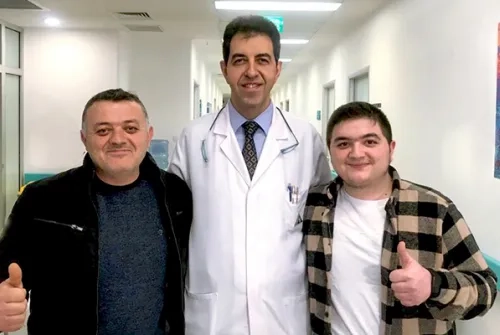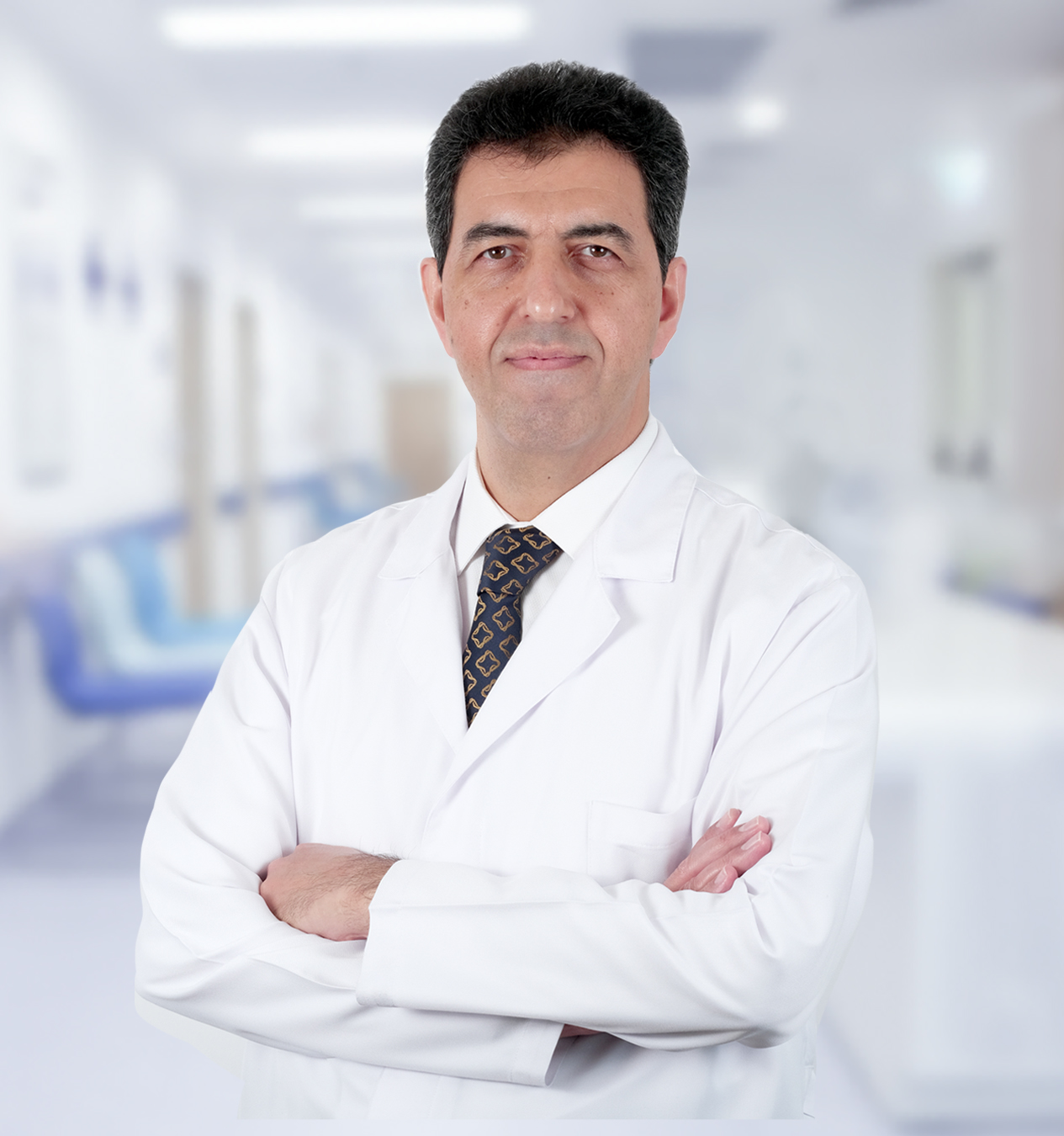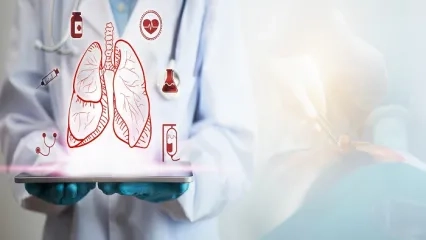Alo Yeditepe
Alo Yeditepe
He Couldn't Breathe; He Regained His Health with the Application of 3 Different Special Surgical Techniques Together
17-Year-Old Recep Couldn't Breathe; He Regained His Health With The Application Of 3 Different Special Surgical Techniques Together
In September 2022, 17-year-old Recep Taşdelen had a motorcycle accident in Sivas, resulting in a brain hemorrhage and a broken leg. After undergoing multiple surgical procedures and being admitted to the intensive care unit, he started experiencing shortness of breath. Due to his difficulty in breathing, he became unable to speak. However, thanks to a surgery that involved the combination of three different surgical techniques, he can now breathe comfortably and speak again. Tasdelen, who went through all these experiences for seven months, stated that words are insufficient to describe it and that understanding it without experiencing it is very difficult.
After undergoing multiple consecutive surgical procedures, Recep Tasdelen, who was experiencing shortness of breath as a result, came to Yeditepe University Hospital in Istanbul with his family for treatment. Prof. Dr. Sina Ercan, the Head of the Department of Thoracic Surgery, who was waiting for the right time to operate on the complete airway obstruction and narrowing extending to the vocal cords, stated, "By combining different techniques, we ensured the healthy tissue covering of the airway up to the vocal cords, allowing Recep to breathe smoothly."
"Tracheal Stenosis is One of the Rare Causes of Shortness of Breath"
Yeditepe University Faculty of Medicine Department of Thoracic Surgery Chair, Prof. Dr. Ercan, stated that traumas, irritations, and subsequent narrowings can occur in the trachea in cases where respiratory support devices are used, and provided the following information regarding the subject: "After an unexpected accident, all plans can be disrupted in anyone's life. Due to Recep's brain injury, fracture in his leg, and intensive care processes, healthcare professionals had to resort to respiratory support to save his life. These devices used are foreign materials to the body and can have unexpected effects. Traumas and irritations occur in the trachea, and later these narrowings can arise. Tracheal stenosis is not among the most common causes of shortness of breath, so recognizing this specific narrowing is the most important step. While looking for other causes, these factors can be overlooked or temporarily left untreated due to more serious health problems. When patients encounter such a problem, centers with competent healthcare professionals and infrastructure facilities play a critical role."
"Timing is Crucial in Surgery"
Chest Surgery specialist Prof. Dr. Ercan continued his words as follows:
"When we spoke with Recep, despite several successful dilation procedures, he still had a significant narrowing. He was not ready for surgery when I first saw him. The most significant misfortune these patients face is undergoing surgery too early and hastily. In tracheal surgeries, we cannot insert any artificial parts; instead, we perform a surgical operation where we remove the damaged structure and connect the healthy ends. This results in the shortening of the trachea. Once this procedure is done, if narrowing occurs again, there is not much that can be done. Therefore, we can say that the correct timing is the most crucial factor for successful results. Performing surgery early when there is still infection and swelling, and when the tissues there have not reached their final state, leads to failure."
"Three Special Surgical Techniques were Combined"
Yeditepe University Hospitals Chest Surgery Department Head Prof. Dr. Sina Ercan, explaining that they managed the surgical process very well with Recep and his family, said, "We saved Recep from the fear of drowning and death and allowed the tissues to heal properly through a well-performed tracheostomy. Recep had both a complete airway obstruction and a narrowing that extended beneath the vocal cords. Since it is a complex area, we reshaped all the cartilages and combined three different special surgical techniques for the reconstruction. Now, both vocal cords are functioning beautifully. By integrating these techniques, we ensured that the airway was covered with healthy tissue up to the vocal cords, allowing Recep to breathe smoothly."
"I Couldn't Speak Because I Couldn't Breathe Enough"
Recep Tasdelen, who experienced constant questioning during his illness, described his experiences with the following words:
"Words fall short, it's hard to understand without experiencing it. I had plates and a cast on my leg, I couldn't walk. When my friends came home, I couldn't even speak properly; I couldn't talk because I couldn't breathe. After the tracheostomy, my leg also healed, and I started walking. But even with the tracheostomy, breathing was very difficult. All these events I went through for 7 months have been a great experience for me. I'm looking forward to reuniting with my teachers and friends to pursue my goal of becoming a mechanical engineer."
"We Came in Tears, Leaving with Smiles"
Recep Tasdelen's father, Serdal Tasdelen, described their journey as follows:
"I haven't slept for 7 months, but for the past 5-6 days, I feel like I can breathe and eat. I was constantly by Recep's side. When he had the tracheostomy, even the slightest change in his voice would worry us. We constantly aspirated to prevent any blockages in the tube. We all went through very difficult times. Even when Recep was in the hospital, he struggled to breathe like a COPD patient. We attributed his breathing problem to surgeries, trauma, and medications, but it turned out to be something else. That's why my advice to families of patients who are in intensive care is to definitely get X-rays and CT scans if the patient has been intubated. This situation can happen to anyone, and it can even go unnoticed by doctors. That's why everyone should be aware. We came to Sina Hoca (Prof. Dr. Sina Ercan) crying, and now we're leaving with smiles on our faces."
Press Coverage: medimagazin | haberturk | haberler | cnnturk | beyazhaberajansi | turkishnews
About
Faculty and Year of Graduation:
Marmara University, 1993
”
See Also
- His Trachea was 95 Percent Closed, He Returned to Life with 10 Hours of Surgery
- Voice Can be Lost If Tracheal Stenosis is Not Detected Early
- Unable to Speak Due to Her Illness, Sibel: I Could Not Tell My Children 'I am Here' During the Earthquake
- Treated For Asthma For Two Years But Has Had A Tumour In Her Trachea
- Chance of Treatment in Patients Who Have a Tube Inserted in Their Throat to Breathe
- Young Man Who Lost His Voice Due to Tracheostomy Regained His Voice After Months
- The Cause of Shortness of Breath May be Trachea Stenosis
- It Is Possible to Prevent Possible Complications of Intubation
- The Tumor in the Trachea was Removed Without Damaging the Vocal Cords
- Survived Coronavirus, Had Windpipe Blockage Months Later, Returned From Death
- The Young Man Whose Trachea Was Completely Blocked After An Accident Regained Both His Health and His Voice
- What is Intubation?
- Lung Cancer
Alo Yeditepe




